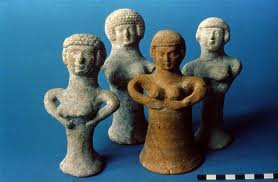 By Rico Cortes and Tyler Dawn Rosenquist
By Rico Cortes and Tyler Dawn Rosenquist
Last year, Rico and I put together an article for the second issue of GTN magazine – it was a great magazine but failed to garner support from the Hebrew Roots community and so this has been sitting on my shelf for a year now. If you are thinking that this doesn’t sound like my style, well you’d be right. This is not my normal writing voice – this is my “have to sound impressive and impersonal” voice lol. When I write this way I have to actually do it on purpose!
Our Cultural Disconnect
It can be exceptionally difficult for modern Biblical readers to grasp the full ramifications and contemporary significance of Yeshua’s verbal battles with the Judean elites. We have been brought up in a society whose justice system is founded on the presumption of innocent until proven guilty. It can be challenging to wrap our minds around the ancient principles of honor and shame – yet we see honor and shame language throughout the Bible, from Genesis through Revelation.
Western minds look at a situation and, based upon what is legally right and wrong, determine guilt or innocence. During Biblical times, and indeed today in many cultures, there existed a zero sum economy in the commodity of honor. The presumed guilty were shamed until proven honorable.
Living in a Zero-Sum Economy
Imagine living in a village with a limited number of gold coins – there will never be any more or less. Some people have a lot of the gold, and some have very little. Those who have many coins came into their wealth through inheritance or acquisition. Those who have few probably inherited very few. If a man who has many decides to gain more coins, he must take them from someone else or earn them in some way. That means that another man will be losing coins – because there are only so many to go around. Now let’s look at this same principle in terms of honor and shame dynamics.
In the Ancient Near East, and during the First Century, people’s entire lives were focused around the retaining and gaining of honor. Whereas people in modern times are more interested in the achievement of fame and the acquisition of wealth, neither of those things were of any value to ancient people who lacked honor in the eyes of their community. To be shamed was worse than death – a cultural attitude we still see in the Middle East, India, and Japan.
A man’s honor was either ascribed or acquired. Ascribed honor came in the form of a good family name, a respectable lineage, or an honorable city of origin. In ancient Israel, being of the Davidic or Priestly line would naturally carry a certain amount of honor. Acquired honor was gained through public acts of benefaction (good works), military victories, and athletic achievements. Another very common means of acquiring honor was through public discourse in the form of the verbal honor challenges. We see Yeshua engaging in these battles throughout the Gospels.
Your family’s ascribed good (or bad) name was your starting point in life, your natural source of standing within the community at large; in order to raise that level of prestige, you had to acquire honor at the expense of someone else.
“…And David his ten-thousands.”
I Sam 18:7 And the women answered one another as they played, and said, Saul hath slain his thousands, and David his ten thousands.
Outside of the honor/shame context, the trouble between King Saul and David can be a bit perplexing. It needs to be understood that in the Ancient Near East the person with the most honor was the king. If the king lost enough honor, he would cease to be king – his subjects would naturally rally around whomever had more, resulting in the death or subjugation of the former king and his family. The women’s praise of David was no mere blow to Saul’s fragile ego, but instead the public exaltation of David’s honor at Saul’s expense. For all intents and purposes, the women were declaring David to be the next king of Israel. David was rising, and therefore Saul was falling.
Along a similar vein, did you ever wonder why John the Baptist’s disciples were so concerned that Yeshua was gaining followers and fame?
John 3:26 And they came unto John, and said unto him, “Rabbi, he that was with thee beyond Jordan, to whom thou barest witness, behold, the same baptizeth, and all men come to him.”
What are they really saying here? “Rabbi! Now this guy you were talking about is baptizing, and people are going to him instead of to you! He is gaining honor at your expense!” What did John say in response?
John 3:30 “He must increase, but I must decrease.”
Translated into plainer honor and shame language, it reads, “He (meaning Yeshua) must increase in renown, and I must decrease in renown.” In terms of influence and public position, Yeshua and John were in the same peer group (both being perceived as prophets), the same community; it was the natural order of things for John’s reputation to decrease as Yeshua’s fame increased. Unlike King Saul, John wisely saw things from a Kingdom mentality and happily made way for the Messiah who deserved all honor.
Honor Killings
Time and time again in the Torah, we see honor killings executed by the “wrath of God.” Whenever Israel, in the wilderness, did something to shame the Name of YHWH, there was a blood penalty – sometimes one man, as in the case of the Sabbath breaker, and sometimes thousands, as in the episode of the Nation whoring with the Moabite women at Ba’al Pe’or. We also see this during the time of the Judges, when the Philistines, or some other nation, would be called in to discipline the twelve tribes. It came down to this: God’s people’s behavior was causing His Name to be blasphemed among the neighboring nations; for the sake of His honor, He was forced to act.
We see the principle of honor and shame today, albeit in a completely unjust way, in the Islamic honor killings – usually of female family members. A woman who is sexually immoral, marries outside of Islam, or even one who is raped brings grave dishonor to the family. The community will shun and refuse to do business with the family until their honor is restored – which involves killing the source of dishonor whether or not she is guilty. In Islamic honor/shame society, guilt and innocence are completely irrelevant; the only concern is restoration of the family name. Of course, YHWH is always just in His actions, and He is very longsuffering – bearing with grievous insults over long periods of time before taking action to restore His honor. But, He is God, and His honor must be restored. The soul who sins (has diminished the honor of God) shall die.
Honor Reversals
A recurring theme throughout Scripture is honor reversal. Two of the most obvious examples are in the account of the enslavement and exodus of the Israelites, and in the death and resurrection of Messiah.
When the Israelites journeyed into Egypt during the great worldwide famine, they went in with honor as family of the second-in-command of Egypt. No people had a greater status apart from the actual royal family and the priests. This changed, however, after Joseph’s death; through a series of events the Israelites were subjected to the shame of slavery. Adding to this shame, they were shown to be powerless against even the confiscation and killing of their male babies. In the Ancient Near Eastern world, trial by water was seen in several law codes as a way of determining guilt or innocence. One accused of a crime was thrown into deep water. If they were innocent, the gods would save them from drowning. If they drowned, the gods themselves were pronouncing guilt. When the Israelite babies drowned in the Nile, it was a sure sign to the world, not of Egypt’s barbarity but instead of Israel’s wickedness – thus their shame status, and their deservedness of enslavement, was unquestionable. Now it should be clear why Moses’ survival in the waters of the Nile was seen by the household of Pharaoh as a sign of his innocence and honor.
Everything that YHWH performed in the plagues against Egypt was relevant in terms of honor and shame – against Pharaoh and against his gods. Pharaoh himself set the stage for this battle when he dared to shame the God of Abraham, Isaac and Jacob:
Ex 5:2 And Pharaoh said, “Who is the Lord, that I should obey his voice to let Israel go? I know not the Lord, neither will I let Israel go.”
Pharaoh refused to acknowledge the supremacy of God over him; to further the insult, he shamed Moses and Aaron as well when he reminded them of their slave status and told them, in verse four, to get back to work. Even though Moses was never a slave, Pharaoh included him with his people when he said, “…get you unto your burdens.” Still not satisfied, Pharaoh further displayed the powerlessness of the Israelites by denying them what they needed in order to do their work. Pharaoh shamed Moses and Aaron, not only in person, but also in the eyes of their people. In verse thirteen, we see that the Israelite leaders themselves were beaten for not being able to complete the work. Challenge, oppression, insults and beating were all ways of reducing the honor of others in the ancient world. Pharaoh’s goal was to shame YHWH, Moses, Aaron, the leaders of the people, and the people themselves.
The ten plagues that followed were specifically designed by God to dismantle the honor of the major Egyptian gods, one by one, as well as the honor of Pharaoh. YHWH shamed them individually, and in the process He elevated the esteem of YHWH in the eyes of the world. Remember that this was about honor within a peer group, like Yeshua and John the Baptist, and although the gods of the Egyptians were not gods at all – the Egyptians and the world didn’t know that. As YHWH overpowered the domain of each god, His honor rose higher and higher. This is why those in the mixed multitude were willing to leave their homes and travel into the wilderness – by the time the Exodus happened, the gods of Egypt had been reduced to nobodies, and Pharaoh’s honor had been severely depleted.
The crippled state of Pharaoh’s honor explains why he chased the Israelites into the Yam Suf. In order to restore his honor, he had to conquer and/or re-enslave them – or at least try. If he failed to go after them, then he was finished. Even if he still had a remaining son, there would not be enough family honor left over to sustain his own reign, much less a dynasty. When Pharaoh entered the sea with his army, he was issuing an honor challenge to God Himself – a challenge that God met with the destruction of Pharaoh’s army in a massive trial by water; not one survived. Thus, as Egypt had subjected the Israelite males to judgment by drowning, Egypt was judged in turn and found guilty – not only in the eyes of God and the Israelites, but also in the eyes of the world. In the end, Israel was elevated to a nation of priests, and Egypt was devastated in every way.
First Century Honor Challenges
Once we know what to look for, we find the Gospels filled with honor/shame language. John’s disciples weren’t the only men concerned with the honor of their teachers, or of themselves. In fact, we see the Pharisees and scribes, as well as priests and leaders, engaging in these verbal battles with the hope of gaining honor at the expense of their peers.
The pattern we see repeatedly is claim, challenge, riposte, and verdict. Someone, like Yeshua, would make a claim, which would then be challenged by someone else. The person making the claim would have either to come up with a compelling answer (the riposte) or refuse to answer, and the public would give a verdict as to who had won the honor match. The winner walked away victorious, and the loser lost face.
A great example of this is found in Luke Chapter 13:10-17
And he (Yeshua) was teaching in one of the synagogues on the sabbath. And, behold, there was a woman which had a spirit of infirmity eighteen years, and was bowed together, and could in no wise lift up herself. And when Yeshua saw her, he called her to him, and said unto her, (claim) Woman, thou art loosed from thine infirmity. And he laid his hands on her: and immediately she was made straight, and glorified God.
And the ruler of the synagogue answered with indignation, because that Yeshua had healed on the sabbath day, and said unto the people, (challenge) There are six days in which men ought to work: in them therefore come and be healed, and not on the sabbath day. The Lord then answered him, and said, (riposte) Thou hypocrite, doth not each one of you on the sabbath loose his ox or his ass from the stall, and lead him away to watering? And ought not this woman, being a daughter of Abraham, whom Satan hath bound, lo, these eighteen years, be loosed from this bond on the sabbath day? And when he had said these things, all his adversaries were ashamed: (verdict) and all the people rejoiced for all the glorious things that were done by him.
The problem for those challenging Yeshua was that they were always losing the battle. Yeshua was increasing in honor, and everyone else was losing honor. Not everyone reacted badly to this. In fact, many praised His wisdom and answers, but all who sought to dishonor Him were themselves dishonored. It became so unbearable for them that they started seeking out ways to kill Him. There was a catch, though: They couldn’t kill Him unless they dishonored Him first, or he would become a martyr, and verbal battles weren’t working.
The Shame He Endured
I can hardly overstate what I am about to describe to you. To be arrested as a common criminal, in and of itself, was intensely humiliating in the ancient world. An innocent verdict in a court case would not undo the shame brought onto a family by the arrest of a relative – especially if the arresting officers were among the chief priests, certainly the most honored Jews in the land in light of the fact that there were no longer legitimate kings sitting on the throne of David. Even Pilate mocked Yeshua by pointing out that it was His own nation and chief priests who had handed Him over.[1] It was not an unruly mob of dishonorable nobodies who had brought Yeshua in, but the highest officials in the Land.
Even before He came before Pilate, however, He was subjected to great shame. In the ancient world, a man’s head and right arm were the visible symbols of his pride. Therefore, common shaming techniques involved hitting a man about the head,[2] spitting in his face,[3] and blinding him.[4] In addition, His character was slandered, and He endured mocking[5] – which in the ancient world was considered worse than enduring physical pain.
When He came before Herod and the soldiers, again He was mocked.[6] When Pilate turned Him over to his own soldiers, Yeshua was stripped down naked, mocked and flogged – but that is the nice way to say it. A Roman scourging was carried out in public, in the nude, and according to historical accounts was generally accompanied by a loss of bowel and bladder control – much to the delight of the crowd. It is important to remember that the pain inflicted was only the means to the true goal of utter and complete shaming. They mocked His Kingship with robes and a crown of thorns, shedding more blood – another shaming technique meant to reveal powerlessness. He carried His own crucifixion beam through a city full of Passover celebrants, and then He was nailed and tied to the Roman cross – his arms (symbolic of a man’s power) immobilized.
Of course He was hung up high, between two criminals, probably absolutely naked because it is unlikely that the Romans would have spared Him any measure of shame. As He hanged there, his body would have become misshapen, insects would have gathered in His wounds, birds might have come near to harass Him, and certainly we see that bystanders did. If He did not lose control of His bowels and bladder during the scourging, He most certainly did on the cross as His strength ebbed away in the endurance of grotesque pain. Possibly most humiliating of all, His genitals (the ultimate symbol of a man’s honor) would have become swollen, in full sight of everyone present. Despite having willingly laid down His own life, He died as a shamed, disfigured criminal.
Even in death His body was mutilated, as it was pierced with a spear. But right before His legs were to be broken, the honor reversal of the Father was beginning. He would declare His Son to be the ultimate vessel of honor. Yeshua’s humiliation was over, and His vindication was underway!
Because He was already dead when they came to check on Him, His legs were not broken – ensuring His position as the Lamb of God, being that the bones of the Passover Lamb were not to be broken. Instead of being permitted to hang and be eaten by the birds, He was taken down by men of honor and given a kingly burial in an undefiled tomb. And most importantly, on the third day He was raised up and declared not only to be innocent, but to be the Son of God. When God raised Him up, He vindicated every claim, every teaching, everything Yeshua had ever said in the Name of the Father. God gave Yeshua the ultimate honor, and the ultimate honor reversal.
What does this mean for us?
The lost and exiled Northern Kingdom of Israel and the Gentiles had one thing in common – shame. Israel had been exiled as an adulterous wife – after having shamed her Husband and her God, causing His Name to be blasphemed among the Gentiles. They were cast outside of the Covenants of promise spoken of by Paul, enslaved to sin, without God in this world – existing as vessels of shame. When Yeshua died in the place of adulterous Israel, He restored the honor of the Father. When we covenant with the Father through Yeshua, our family Name is changed – we go from shamed and discarded, outside of the Kingdom, to honored citizens of the Kingdom of Heaven. We take upon ourselves the ascribed honor of the Name of Yeshua, and in gratitude we are indebted to spend the rest of our lives bringing honor to that Name.
Paul states best, the mission of Messiah in Phil 2:5-10.
Let this mind be in you which was also in Messiah Yeshua, who, being in the form of God, did not consider it robbery to be equal with God, but made Himself of no reputation, taking the form of a bondservant, and coming in the likeness of men. And being found in appearance as a man, He humbled Himself and became obedient to the point of death, even the death of the cross. Therefore God also has highly exalted Him and given Him the name which is above every name, that at the name of Yeshua every knee should bow, of those in heaven, and of those on earth, and of those under the earth.
Rico Cortes is the founder of Wisdom in Torah Ministries and an international lecturer on the Ancient Near Eastern and First Century context of Scripture. He holds a degree in Ancient Near Eastern Studies and Bible History. The Rico Cortes Show airs regularly on Hebrew Roots Network. Born in Puerto Rico and raised in California, he is of Sephardic Jewish heritage and came to a saving knowledge of Yeshua in 1998. Before coming to Torah, Rico was a former professional baseball player for the New York Yankees and New York Mets in the minors before spending ten years as a baseball scout for the Chicago White Sox. New teachings can be found weekly on his website, and The Rico Cortes Show airs regularly on Hebrew Roots Network. Rico has a passion for bringing Bible context into the home of every believer. His newest venture is Teshuva.tv, a 24 hour Spanish language radio broadcast featuring many talented Bible teachers.
www.wisdomintorah.com and www.teshuva.tv
Tyler Dawn Rosenquist is the author of The Bridge: Crossing Over into The Fullness of Covenant Life, which is aimed at bringing mainstream Christians into an understanding of Torah. Her second book is entitled, King, Kingdom, Citizen: His Reign & Our Identity from the Ancient Near Eastern and First Century Context. Tyler is one of the Wisdom in Torah Talmidim Teachers, and she writes on scriptural context and character for her own website, The Ancient Bridge. Tyler has a degree in Chemistry from the University of California, Davis. She is a stay at home, homeschooling mom and wife. Her current passion and project is the development of Context for Kids, a series of homeschool curriculum books devoted to teaching Ancient Near Eastern and First Century context to whole families around the dinner table.
www.theancientbridge.com and www.contextforkids.com
[1] John 18:35
[2] Matt 26:67; Mark 14:65; Luke 22:63-64; John 18:22
[3] Matt 26:67; Mark 14:65;
[4] Mark 14:65; Luke 22:64
[5] Matt 26:68; Mark 14:65; Luke 22:63-64
[6] Luke 23:11






















Thank You ALL for the tremendous WORK being DONE for the KINGDOM.
my favourite verse: Mat. 6:33